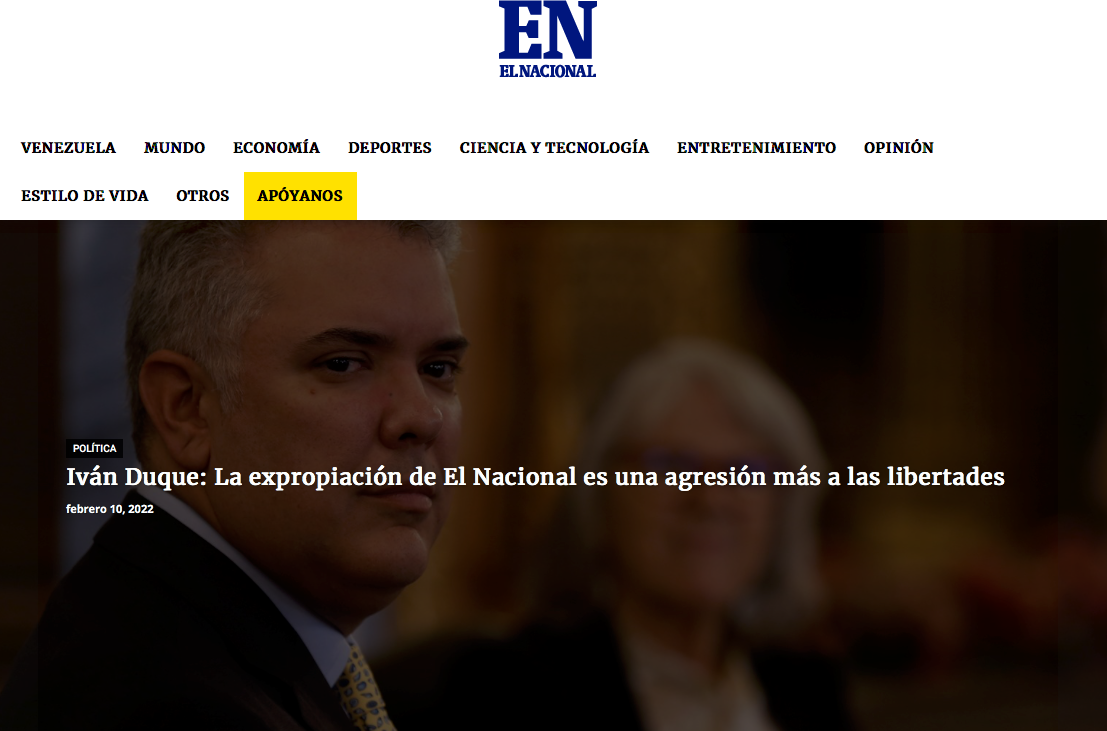The IPI global network today condemned the forced transfer of the headquarters of Venezuela’s El Nacional newspaper to Socialist Party Vice President Diosdado Cabello. The farcical court ruling is the latest unmistakable attack on press freedom in Venezuela.
The decision by a Venezuelan court is the outcome of a long-running defamation lawsuit against El Nacional. The property transfer was carried out on February 7 in what the newspaper said was an “irregular and clandestine judicial auction”.
In 2015, Cabello filed a complaint against El Nacional for re-running an article by Spanish newspaper ABC. The article associated Cabello with drug trafficking. Cabello also sued ABC in Spain and The Wall Street Journal in the United States at the same time. Both cases were dismissed.
After suing El Nacional, Cabello had threatened to change the newspaper’s headquarters into a university or use the land to build low-income housing.
In April 2021, a Venezuelan court decided the case in favour of Cabello. The judge in the case was the sister of President Maduro’s comptroller general. El Nacional was ordered to pay 13.4 million U.S. dollars to Cabello for defamation. The next month, on May 14, El Nacional and all its assets were seized.
“The transfer of the headquarters of El Nacional to Diosdado Cabello is a farcical and outrageous culmination of the Venezuelan government’s years-long harassment and persecution of the newspaper”, IPI Deputy Director Scott Griffen said. “What could be more symbolic than the literal takeover of El Nacional’s property by one of Nicolas Maduros’s right-hand men? This has nothing to do with justice, and everything to do with the Venezuelan regime’s intolerance of free media.”
El Nacional was founded in 1943 and published a print version of the newspaper until December 2018. Since then, El Nacional has been publishing online. The cessation of the print newspaper was driven by government actions such as limiting access to printing paper. El Nacional has continued its critical approach to the Venezuelan regime despite the repression.
Since Nicolás Maduro became president in 2013, more than 100 media outlets have been closed in Venezuela.
